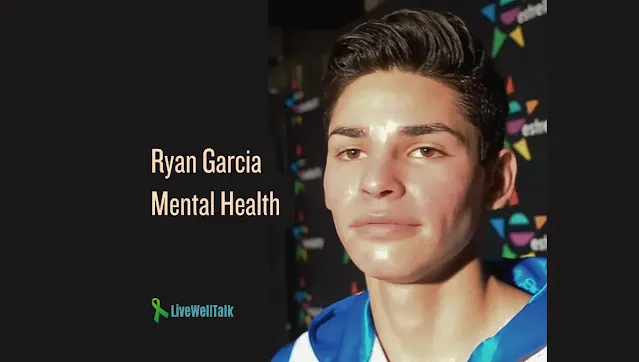In the enthralling world of boxing, Ryan Garcia has emerged as a young star, captivating audiences with his lightning-fast speed and explosive power. However, beyond the dazzling displays in the ring, Garcia's journey has been marked by a complex and evolving narrative surrounding his mental health.
Exploring the intersection of athletic prowess and mental well-being, in this article, we delve into Garcia's story, examining his struggles, his path to seeking help, and the ongoing public discourse surrounding his mental health.
Ryan Garcia's Mental Health
Ryan Garcia, the undefeated lightweight boxing phenom known for his flashy style and knockout power, has also garnered attention in recent times for a different reason – his mental health struggles.A Rising Star and the Emergence of Concerns
Garcia rose to fame with his exceptional talent and vibrant personality. He amassed a dedicated fanbase, captivated by his charisma and dedication to the sport. However, in 2021, a series of concerning events sparked public discussions about Garcia's mental state. He abruptly withdrew from a scheduled fight, citing mental health concerns, a move that shocked the boxing world.Social Media and Mental Health Concerns
In February 2024, Garcia's online activity further heightened concerns about his mental well-being. A string of erratic social media posts, including religious references and accusations towards individuals in the boxing community, fueled speculations about his mental state. This incident sparked a crucial conversation within the sporting world, prompting discussions about the importance of mental health awareness and support for athletes. Read also: Jorge Lopez Takes Time Away from Baseball to Focus on Mental Health
By fostering open and compassionate conversations about mental health, we can create a world where individuals like Ryan Garcia and countless others feel empowered to seek help, overcome challenges, and achieve their full potential.
Disclaimer: This article is not a substitute for professional medical advice. If you are concerned about your mental health or that of someone you know, please reach out to a qualified mental health professional.
Seeking Help and the Road to Recovery
Following the public outpouring of concern, Garcia revealed in a heartfelt message that he had sought professional help to address his mental health struggles. He expressed his gratitude for the support he received and acknowledged the importance of prioritizing his well-being. This act of courage and transparency resonated with many, offering a message of hope and encouraging others to prioritize their mental health.Latest News and Ongoing Support
As of March 7, 2024, Garcia continues his journey towards recovery. He recently spoke about battling suicidal thoughts during a challenging period, further emphasizing the depth of his struggles. While he has yet to confirm his return to the ring, his continued commitment to addressing his mental health remains a source of inspiration for many.Moving Forward and the Importance of Empathy
Garcia's story serves as a crucial reminder that mental health challenges can affect individuals from all walks of life, including high-profile athletes. His journey highlights the importance of seeking help and the transformative power of support and understanding. As we move forward, the boxing community and the wider public alike must continue to prioritize empathy and open communication regarding mental health.You may also be interested to read:
By fostering open and compassionate conversations about mental health, we can create a world where individuals like Ryan Garcia and countless others feel empowered to seek help, overcome challenges, and achieve their full potential.
Disclaimer: This article is not a substitute for professional medical advice. If you are concerned about your mental health or that of someone you know, please reach out to a qualified mental health professional.
You can find some helpful resources here 👇


Comments
Post a Comment